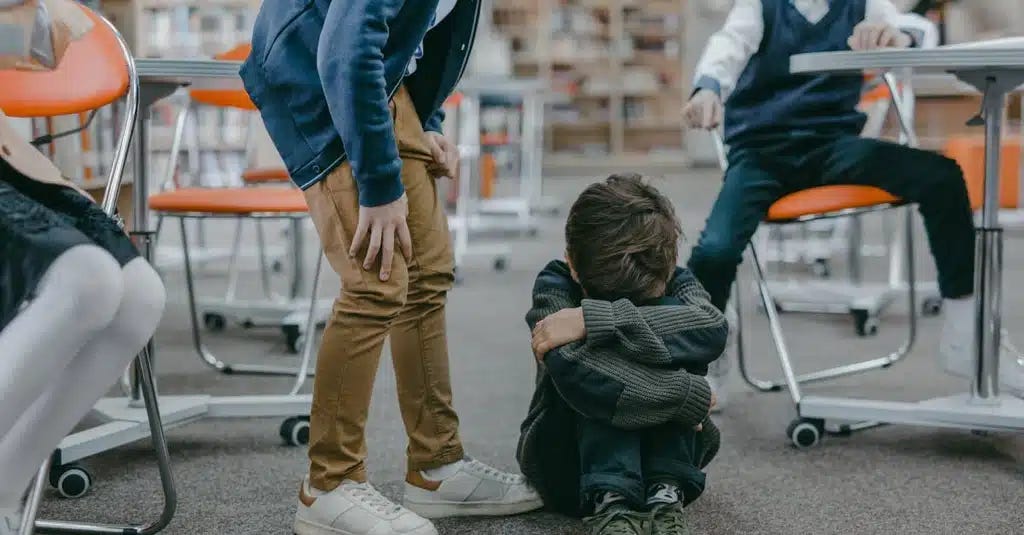News Round-Up: Brazil Blocks X, US Companies Walk Back on DEI Policies and China Breaks Coal Records
Every week, the editorial team of Freedom Research compiles a round-up of news that caught our eye, or what felt like under-reported aspects of news deserving more attention.
Over the past week, the following topics attracted our attention:
Brazil blocks X, freezes Musk's assets.
US companies are walking back on DEI policies.
Consequences of lockdowns: bad behaviour wave of pupils.
China's coal production and imports set records.
Almost a third of primary school pupils in Sweden speak a language other than Swedish as their first.
Brazil blocks X, freezes Musk's assets
Brazil's Supreme Court Judge Alexandre de Moraes issued an order this week, freezing all the assets of Elon Musk-owned companies on Brazilian soil and blocking his social media platform X in the country because it refused to censor users on political grounds.
The confrontation between X and Brazil over freedom of expression has been going on for months. Two weeks ago, X announced that it would close down all its on-the-ground activities in the country. The company cited the fact that the same judge, de Moraes, had signed a document ordering X to pay a daily fine of 20,000 reais (€3,200) and calling to arrest the company's legal adviser, Rachel Nova Conceicao, pending compliance with national censorship requirements. “To protect the safety of our staff, we have made the decision to close our operation in Brazil, effective immediately,” the Elon Musk-owned company said in a statement commenting on the decision. Access to the platform remained available to Brazilians after the decision.

But now it has changed. This week, de Moraes issued a new order requiring X to pay the fines and to name their legal representative in the country. The judge gave the company until Thursday evening to do so and threatened to ban X from the country if they failed to comply. X then stated that they had no intention of complying with what they considered to be illegal orders from the Brazilian judge. The orders, and the whole dispute, are based on X's refusal to censor, at the request of the state, users of the platform whose critical posts displease the politicians currently in power in the country, those users including an elected senator as well as a 16-year-old girl. Justice de Moraes himself had ordered that the X accounts accused of spreading disinformation - many supporters of the former president Jair Bolsonaro - must be blocked while they are under investigation. He said the company's legal representatives would be held liable if any accounts were reactivated. However, X says they stand up for freedom of expression and call the censorship demands and what is currently taking place illegal even according to the laws of Brazil itself.
As of Saturday morning users in Brazil say X is not available in Brazil any more. On top of that, justice de Moraes has given companies such as Apple and Google a five-day deadline to remove X from its application stores and block its use on iOS and Android systems. De Moraes added that people or businesses using means such as VPNs (virtual private network) to access the platform could be fined R$50,000 (€8000).
In addition to directly affecting X, de Moraes also issued an order to seize assets of Musk's other companies in Brazil. The order concerns in particular the satellite-based internet service Starlink, owned by Musk's company SpaceX, whose Brazilian bank accounts have now been frozen at the request of the court.
Musk commented on the latest developments via X, calling de Moraes an evil dictator playing a judge. “Free speech is the foundation of democracy,” he also posted.
US companies walking back on DEI policies
Several major US companies are abandoning so-called diversity, equity, and inclusion (DEI) policies, which have essentially meant giving full preferential treatment to LGBTQ people and other groups in society who call themselves minorities.
The latest major company to confirm this week that it is abandoning its DEI policies was the US car manufacturer Ford, CNBC reports. According to internal company communications that became public, the company plans to take a fresh look at its DEI policies, taking into account the 'external and legal environment related to political and social issues'. Probably this means that the the company will no longer give automatic preferential treatment to groups that identify as minorities, such as LGBTQ people, and will not oblige its suppliers to do so. It is also likely for the company to stop heeding the recommendations of any lobbying organisations promoting LGBTQ agendas, to stop supporting pride parades or other events by groups in society that identify themselves as minorities, to stop recognising quotas in DEI policy that require a certain number of women, non-whites or other so-called minorities to hold management positions, etc.

In recent months and weeks, several major US companies have backtracked on DEI policies. For example, retailer Tractor Supply abandoned them earlier this summer, followed by motorcycle manufacturer Harley-Davidson, home and hardware retailer Lowe's, with Jack Daniel's whiskey producer Brown-Forman Corp. making the same decision in recent weeks.
The companies have cited conservative backlash or changing social and political environments in their announcements about not following DEI guidelines any longer.
Consequences of lockdowns: bad behaviour wave of pupils
UK Department for Education (DfE) is preparing schools for a wave of problem behaviour among pupils, as children whose social skills development has suffered most from Covid restrictions and lockdowns and who have already developed behavioural difficulties as a result now enter difficult teenage years.
The DfE data show that there were over 50 per cent more suspensions in years seven and eight in the 2022-23 academic year than in 2018-19, writes The Telegraph. Students were temporarily suspended or expelled because of persistent disorderly behaviour, such as spitting, throwing chairs, fighting, and hitting teachers. According to the teachers' union, its members are reporting worsening violence and abuse from pupils since the Covid pandemic, the BBC reports.
About one in 20 (5.57 per cent) of all 11-year-olds in 2022-23 was suspended at least once, the figures show – up from 3.57 per cent in 2018-19. For 12-year-olds, the same rose from 5.52 per cent to 8.29 per cent. Tom Bennett, a DfE adviser on behaviour management, told The Guardian that home schooling during lockdown “may well be responsible for the deterioration of some social skills, which, like truancy, will be disproportionately concentrated in sub-groups who were already most at risk of misbehaving”.

This September, however, these children will start the 9th-10th school year, reaching the age that has been considered the most likely time for poor behaviour. While older children are also behaving worse now than before the pandemic, the trend for these age groups is not as bleak as for younger children. The DfE considers it possible that the problem will continue as children grow up and they could end up with a complete lack of social skills.
Problems in pupils have also been observed in other countries, e.g. in Finland, where pupils' anxiety levels have clearly increased, in some cases by as much as ten percent, since the Covid pandemic, writes Yle (Finnish National Broadcasting). In a survey last year, more than half of 8th-9th grade girls in some schools described feelings of anxiety. According to the Finnish Institute for Health and Welfare, girls experience anxiety significantly more than boys.
Although the problems are evident, it appears that not all have taken notice. For example, two schools in the US states of Alabama and Tennessee announced their closure due to Covid surge. That is despite the well-established facts that such lockdown policies do more harm than good for society as a whole and that children are by no means at any serious risk from the disease itself.
China's coal production and imports set records
China has stepped up both domestic coal production and imports, as the country relies on it to generate electricity, especially in colder months. Producers are stockpiling to avoid the power shortages that hit the country in the autumn and winter of 2021.
Although Chinese leaders also talk about the goal of achieving 'Net Zero', the majority of the country's electricity generation, or about 60% is today still based on coal. While the share of coal in China's electricity generation falls somewhat in the summer, driven by hydropower and solar and wind farms, the country relies on coal for 75% of its electricity generation in the winter. The figures therefore hint that China's use of coal to meet its energy needs is increasing over time, and along with it also the CO2 emissions that at least part of the world is trying to get rid of because of climate targets.
In July this year, 390 million tonnes of coal were mined in China, Reuters reports. In July 2023, 378 million tonnes were mined, and in July 2022, 373 million tonnes.

While mining volumes have been lower so far this year compared to the same period last year, imports for the first seven months as a whole are at a record high. Between January and the end of July this year, China imported 296 million tonnes of coal. In 2023, 261 million tonnes were imported in the same period, and 139 million tonnes in 2022.
The increased numbers reflect the fact that power generators are busy building up winter stocks and are keen to avoid winter electricity shortages. For example, in the autumn and winter of 2021, there were widespread blackouts in the country, leaving millions of households and businesses without electricity. In the following years, China ramped up coal-fired power generation, and in 2022, coal-fired power plants were commissioned in the country at the rate of two per week. Now, however, this has fallen sharply – in the first half of this year, the government approved 10 new coal-fired thermal power plants, 83% fewer than in 2023.
Almost a third of primary school pupils in Sweden speak a language other than Swedish as their first
According to the Swedish National Board of Education, almost a third of all primary school pupils in Sweden speak a language other than Swedish as their first language, The Nordic Times reports.
Ten years ago, in the 2014/2015 school year, 24% of pupils in Sweden's primary schools were speaking some other language than Swedish as their first language, but figures for the last school year, 2023/24, show that the proportion has risen to 29%. This means that almost a third of all pupils in Sweden's primary schools speak a language at home that is not Swedish. The most common home language among these pupils is Arabic, followed by Somali, Kurdish, Bosnian, and Serbian. This makes Sweden the most multilingual country in the Western world, far outstripping countries such as the United States, the United Kingdom, and Australia, where 20-25% of schoolchildren speak a language at home different from the majority.
This development mirrors the massive immigration to Sweden in recent decades, which has brought about a dramatic demographic change in the country. It is now estimated that 40-45% of children and young people living in Sweden are of foreign origin, either born abroad or descendants of parents who were born abroad and immigrated into the country.
At the same time, the proportion of traditional minority languages in Sweden, such as Finnish and Sami, is declining.





Reading labels on all products for sale here in Australia will now include choosing not to purchase anything Made in Brazil. Lucky I am a tea drinker.
A URL whereby one could be awered of that judge, the spurious Foro de Sao Paulo, etc. was unveiled through The Epoch Times a couple of years ago. They told you!